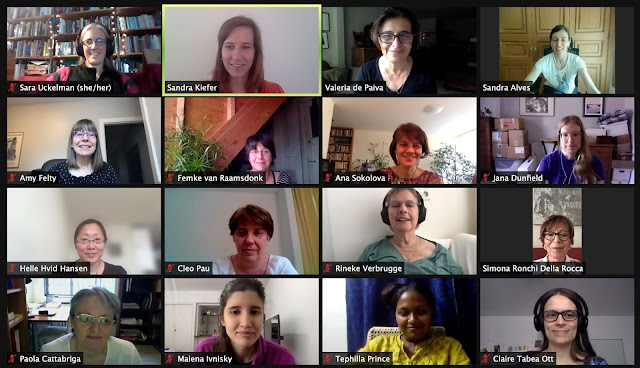We just had another great edition of Women in Logic! Congrats to the organizers Sandra Alves, Sandra Kiefer and Ana Sokolova for a fun, challenging and diverse meeting! Thanks also to our Invited Speakers Professors Simona Ronchi Della Rocca (Università di Torino) and Rineke Verbrugge (University of Groningen) for very inspiring talks!
This time we didn't have any incidents like last year (my write-up of the incident last year is in https://logic-forall.blogspot.
We are a small workshop, so we follow what the conference we're associating with says; and I think it's fair to say that the main issue this year has been the registration fee, which was plainly terrible. This came as a surprise to me (and, I believe, to everyone else too!). Since last year there was no registration fee for the workshop, I thought this year was going be the same. After all, our workshop is about logic work done by women, but it is not exactly a huge source of brownie points (or commercial value) to anyone. We help people get used to presenting their work, in other more 'hostile' environments, and I have been extremely impressed with the quality of the work the young ones do. They get some amount of mentoring on their papers and on dealing with questions, misunderstandings, etc. But for the audience, which is there to cheer them on and to learn a few things about their work, to pay 30 euros for a single day seems excessively expensive!
After all, the silver lining of the pandemic and of the lockdowns had been the possibility, for many, to interact with their academic heroes, to watch seminars that happened in all parts of the world, "to be" in Australia one day and the next in Colombia, while still hearing about your favorite subject. That now people insist on gatekeeping these possibilities, by making the conferences unaffordable, seems perverse.
I understand that even online conferences have costs that need to be paid, but I worry that calculations and sponsorships are following outdated models. And I believe the push to make it more accessible needs to be done by everyone in the community, not just a few. Otherwise, the prestigious conferences will carry on being unaffordable, reproducing the sins of the conventional publication model.






